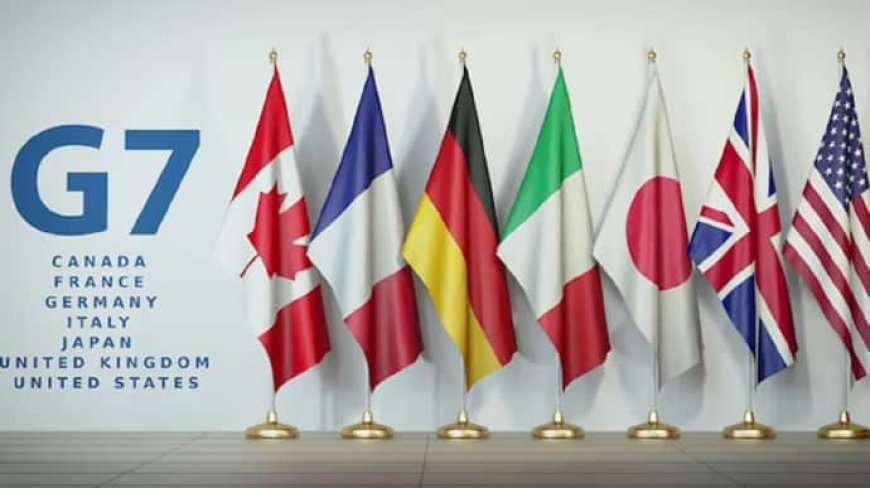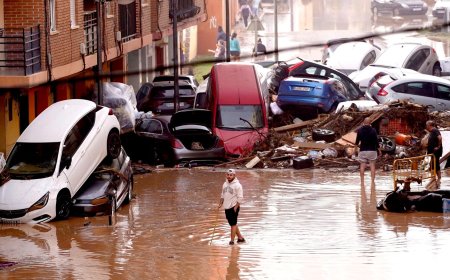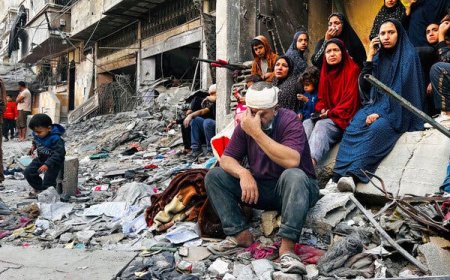"G7 Defense Summit Focuses on Reforms Amid Global Conflicts"
"G7 Defense Summit Focuses on Reforms Amid Global Conflicts"

The G7 defense ministers convened their first dedicated defense summit in Naples, Italy, on Saturday. This critical meeting came amid a rapidly escalating global security situation, driven by multiple ongoing conflicts, including the war in Ukraine, heightened tensions in the Middle East, and growing instability in sub-Saharan Africa and the Indo-Pacific region. The summit was organized by Italy, which currently holds the rotating presidency of the Group of Seven (G7) countries. The gathering marked an important moment for the G7 as it grappled with an increasingly complex international security environment.
Key Themes and Discussions
1. Ongoing War in Ukraine:
Ukraine remained a central focus of the summit, with the country entering its third winter of war against Russian forces. The conflict has put immense pressure on Ukraine, both militarily and economically. Ukrainian President Volodymyr Zelensky recently presented a "victory plan" to the European Union and NATO, emphasizing immediate NATO membership, which has been deemed unfeasible by alliance members. Zelensky's plan also called for the capability to strike military targets inside Russia and requested a "non-nuclear strategic deterrence package" on Ukrainian territory.
The ministers were also concerned about reports, based on South Korean intelligence, that North Korea might be deploying a significant number of troops to support Russia in its war against Ukraine. Although NATO has not confirmed this intelligence, the possibility of North Korean involvement underscores the increasingly international nature of the conflict.
Another pressing issue is the prospect of reduced U.S. military support for Ukraine. With the possibility of Donald Trump returning to the White House after the upcoming U.S. elections, there are fears that Washington’s military aid to Ukraine could significantly decline. This uncertainty weighs heavily on Kyiv as it faces mounting battlefield losses in eastern Ukraine and struggles to maintain Western backing.
2. Escalating Conflict in the Middle East:
The recent surge in violence between Israel and Hamas, and the potential for broader regional destabilization, was another critical issue at the G7 summit. Just two days before the meeting, Israel announced that it had killed Hamas chief Yahya Sinwar, the mastermind behind the October 2023 attacks on Israel. Israeli Prime Minister Benjamin Netanyahu framed Sinwar's death as the "beginning of the end" of the war against Hamas, while U.S. President Joe Biden said it opened a "path to peace." However, the conflict is far from over, and the region remains volatile.
Italian Defense Minister Guido Crosetto had previously stated that the escalating Middle East conflict would receive "ample space" in the one-day summit. The discussions were particularly pertinent, given the complex and interconnected nature of Middle Eastern politics, which could lead to broader confrontations involving Iran-backed Hezbollah in Lebanon and other regional actors.
Italy's Prime Minister Giorgia Meloni visited Lebanon just before the summit, where Israel has also been clashing with Hezbollah. During her visit, she condemned attacks on UN peacekeepers in Lebanon, calling them "unacceptable" after Israel allegedly targeted their positions. Italy has around 1,000 troops in the UN peacekeeping force in Lebanon, and Meloni’s comments underscored Italy’s significant stake in the region’s stability.
3. Global Security Concerns:
Beyond Ukraine and the Middle East, the summit also addressed broader global security challenges, including the instability in sub-Saharan Africa and rising tensions in the Indo-Pacific region. The deteriorating security situation in Africa, particularly in regions affected by military coups and extremist violence, was another area of concern for the G7 ministers.
The Indo-Pacific region, increasingly seen as a focal point for strategic competition, particularly between China and the West, was also on the agenda. This region has seen growing tensions, particularly around issues such as Taiwan, maritime disputes in the South China Sea, and military buildups by various regional powers.
4. NATO and the EU's Role:
The summit was attended by key figures such as NATO Secretary General Jens Stoltenberg and the EU's foreign policy chief, Josep Borrell. Their presence underscored the close cooperation between NATO, the European Union, and the G7 in addressing global security challenges. Italian Defense Minister Crosetto, in his opening remarks, emphasized the importance of defending democratic systems, particularly in light of the ongoing aggressions by Russia and the worsening situation in the Middle East.
Crosetto's statement highlighted the summit's overarching goal of responding to what he described as a "deteriorated security framework" with predictions that the near future would offer little improvement. The presence of NATO and EU leaders reinforced the idea that the G7 was aligning its strategies with broader multilateral institutions to tackle these complex challenges.
5. The G7’s Role in Global Security:
The G7, composed of the world’s major advanced economies, plays a significant role in shaping global security policies. The summit in Naples highlighted the group's commitment to addressing international conflicts and security threats. By convening its first ministerial meeting dedicated to defense, the G7 sought to send a clear message of unity and resolve in the face of rising authoritarianism, military aggression, and regional instability.
Concluding Remarks
The G7 defense summit in Naples was a crucial moment for the group to reaffirm its commitment to global security amidst an increasingly volatile international environment. The wars in Ukraine and the Middle East, coupled with the broader challenges in Africa and the Indo-Pacific, underscore the need for coordinated international action. The discussions highlighted the complexities of these conflicts, particularly the impact of external actors like North Korea in Ukraine and Hezbollah in Lebanon, and the potential for future crises if immediate and effective responses are not crafted.
The summit's outcomes will likely shape the G7’s defense and security policies in the coming months, as the world faces a series of intertwined conflicts and challenges that require both military and diplomatic solutions. The G7's ability to navigate these challenges will be critical in determining the future stability of many regions around the globe.
What's Your Reaction?





















































































